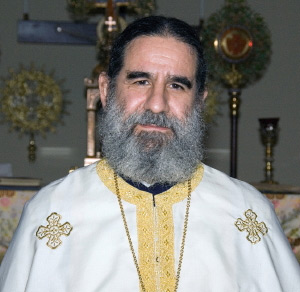 The doctrine of Original Sin has been circulating for about 1600 years but it is not supported scripturally or theologically by the tradition of the Early Christian Church. It is a theological development mistakenly introduced by St. Augustine. (1)
The doctrine of Original Sin has been circulating for about 1600 years but it is not supported scripturally or theologically by the tradition of the Early Christian Church. It is a theological development mistakenly introduced by St. Augustine. (1)
Question: What happens to children if they die before baptism? Are un-baptized babies condemned?
Once, a lady came to my office to talk to me about the sadness she was experiencing for many years; she had had five miscarriages and was mourning the loss of her children. Her biggest difficulty with the issue, she explained, was that her children were condemned to hell because they were never baptized.
I asked her how she had come to that conclusion and she answered that she was taught early in her life that all people who die and have never been baptized go to hell, even infants, because of “original sin”.
The two questions I would like to raise here today are (1) “Where has this idea come from?” and (2) “Is this the teaching of the Ancient Christian Church?”
Historically speaking, this idea was propagated through the centuries by the Roman Catholic Church. They received this teaching from the great saint and doctor of the Western Church St. Augustine, who had based his anthropology on the concept of “traducianism”.
According to the philosophical concept known as “traducianism” human souls, like human bodies, are derived from the seed of the father, hence the father may transmit to his children even his own sins. This idea is clearly found in Tertulian and also in Ambrosiaster’s (2) commentary on Romans, which appeared during the papacy of Damasus (366-384).
Augustine was influenced in his theory of human nature by both Ambrose and Ambrosiaster. It was Ambrosiaster’s commentary, however, that played a decisive role in Augustine’s theory of “original sin.” It was here that Augustine found not only the traducianist concept but also the idea of sinning in massa, in other words, that the whole human race has sinned through Adam and is condemned through his sin.
Unfortunately, Augustine knew little Greek (3) and seems to have failed to understand clearly the teaching of the Greek Fathers who lived before him. Even though he had read some of the texts, which would have corrected his error on this issue, he failed to reach the same conclusions.
Augustine believed that all human beings have sinned in Adam “in massa” and are thus condemned along with him. He believed that the fallen human condition and the original sin of Adam has defiled (contaminavit) all humanity and that this defilement is propagated through the act of procreation. He believed and taught that every human being born into the world inherits through the seed of his father the sin and guilt of Adam – the “Original Sin” – and is thus condemned to hell, unless he/she is baptized.
St. John Chrysostom, on the other hand, following the Tradition of the Greek Fathers before him, saw the transgression of Adam as the cause of our present fallen condition, i.e. the fallen human nature, where all are bound by weaknesses, shame, fear, suffering and “polla; fusika; ejlattwvmata,” (many natural shortcomings), but above all that we are bound by death. Chrysostom believed that we have been condemned to this condition due to Adam’s transgression, but not as a punishment, rather out of the mercy and the providence of God. Not only did we not lose from this, he claims, but in fact we have gained. This condition has become for us a training ground (didaskalei’on) for virtue, so that we can become capable of receiving the future gifts of God. Chrysostom rejects the idea that we are responsible for and being punished for Adam’s sin, as absurd. We are only responsible, he explains, and punished for the sins we commit ourselves willingly (oi[koqen).
With regard to baptism, Chrysostom agrees with infant baptism, not because there is a need to cleanse a child from the sin and guilt of Adam, or because infants have sins of their own, but because through baptism they will receive sanctification, justification, sonship, inheritance, brotherhood with Christ, become members of Christ and a dwelling place for the Holy Spirit. He says nothing about the forgiveness of the sin of Adam, which a child may be bringing with it. In fact, nowhere in the texts, which I have examined, including those quoted or referred to by Augustine in “Contra Julianum Palagianum,” have I found any indication, in the mind of Chrysostom, of the existence of the notion of the propagation of the “first sin” through the act of procreation.
From the examination of the text of “Contra Julianum” it seems to me that Augustine had read these same texts, but either misunderstood or completely ignored the passages, which explicated clearly the position of Chrysostom on the issue. The reason for this was probably because he was already convinced of the correctness of his own belief. It is also possible that in his own mind he thought he was protecting the memory of St. John from a possible association with the Pelagian heresy (there are some indications of this in his comments). In so doing, however, he established in the West a teaching of “Original Sin” not completely in line with the Patristic tradition (at least of the East), which was to have a lasting effect on the Western Church, being accepted by Catholic and Protestant theologians alike until our times.
There are obviously serious intellectual difficulties with Augustine’s teaching. As Prof. Gerald Bonner points out: “It is not clear by what justice humanity can share in Adam’s guilt when it existed only in potentiality in his loins at the time of the Fall. It is also difficult to see why the children of the baptized should inherit a guilt from which their parents have been cleansed. Finally, it has been argued that Pope Zosimus’ condemnation of Pelagianism in his Tractoria did not constitute a complete endorsement of the Canon’s of Carthage of 418, which represent Augustine’s doctrine in its most rigorous form.”(4) In other words, Bonner, a Roman Catholic Theologian, questions this theology on three levels: The injustice inherent in this concept, the lack of consideration of the effects of baptism on the parents, and finally, the legality of such a doctrine on the basis of the non-endorsement of the Canons of Carthage of 418 by Pope Zosimus.
I would like to take this a step further and point to an important modern theological development in the West, which has its roots in Augustine’s doctrine of original sin; this is the more recent doctrine-made-dogma of the “Immaculate Conception” of the Virgin Mary. It seems to me that, it was mainly the need of Roman Catholic theology to cleanse the Mother of God from Augustine’s “inherited guilt” that led to the proclamation and final establishment of this new dogma. Had this notion of transmission of defilement and guilt from Adam to his descendants not been so strong in the West there would have been no need for such a theological development.
In conclusion:
I offered the lady who had the five miscarriages the theology of St. John Chrysostom as a more reasonable alternative to what she had known so far and which was so troubling to her. I explained that God is just and would never condemn anyone for someone else’s sin. I argued that, if human judges, who are sinful and imperfect, would never do such a thing, how could God, who is the supreme source of all justice. I pointed to St. Chrysostom’s reassurance that children are innocent and God receives them as such: In Hom 28 on Matthew, he quotes Sophia Sirah 3:1: “the souls of the just are in the hand of God,” and concludes that “so also are the souls of children, for they also are not wicked.” (In Hom. 28, II-III, On Matthew, P.G. 57, 353)
The woman left with a smile on her face. She found peace and comfort in the reasonable teaching of the Orthodox Church.
NOTES:
1. See Fr. P. Papageorgiou, “Chrysostom and Augustine on the Sin of Adam and its Consequences,” St. Vladimir’s Theological Quarterly, vol 39, no 4 (1995): 361-378.
2. Ambrosiaster is an unknown writer from the fourth century, whom St. Augustine thought to be St. Ambrose of Milan and thus treated his writings as authoritative. Because of that, modern scholars named him “Ambrosiaster”.
3. In his “Confessions”, Augustine reveals that he had difficulty with, and in fact despised the Greek language.
4. Gerald Bonner, “Augustine’s theology on ‘Adam,’” in Augustinus-Lexicon, vol. 1, edit. by Cornelius Mayer (Stuttgart: Verlag Publishers, 1986), col. 83
For an Early Christian understanding of this see also the “Homilies of St. John Chrysostom on Romans” translated by P. Papageorgiou, Holy Cross Press, 2013.

















